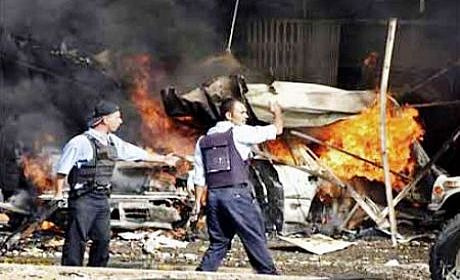Iraq Experiences Days of Political Paralysis

What will, in your opinion, the outcome of the unrests in Iraq be?
What we are seeing are incidents of which the costs must be paid by all political movements. The crisis is so extensive that it is even bigger than the current changes in command in the country’s security institutions. Of course, the changes that have taken place in the security institutions by order of the prime minister are very significant. But the political differences, unrests, threats, and promises made by the political movements are so huge and devastating that they are beyond the power of the country. At the same time, the people unfortunately have to pay the price. It means that behind every terrorist act or bomb explosion or criminal operation is a political movement and the prices are paid by the people.
Does this mean that you consider the recent changes made by Mr. Maleki in the security institutions an element in the intensification of unrests in the country?
The existing crisis is bigger than the changes made in the security institutions as ordered by Mr. Noori Maleki, Iraq’s Prime Minister. It is true that these changes were very useful but the main conflict is between the political fractions among which no political agreement seems to have been reached.
Recently there have been verbal attacks exchanged between Iraq’s Prime Minister and the Speaker of the Parliament. What is your view regarding this issue?
Yes, these statements show the climax of the political crisis in the country. Many political observers and experts in Iraq consider this incident to be very dangerous and believe that, instead of making statements which would lead to peace and unity of public opinion, the two sides make statements that intensify the crisis and provoke public opinion.
What should be done, in your opinion, to reduce the severity of these differences?
The fact is that both sides make mistakes. National participation, based on which the political process of the country was created and the present government was established, does not currently work properly. Despite the expectation that the election of the provincial councils would reduce, to some extent, the intensity and volume of these tensions, this did not happen in practice and, only a few days after the results were announced, a new round of political disputes began between the political fractions.
What is your prediction of the future of these disputes? Is there any hope for them to end?
I believe that these differences will continue until the end of the year and the last months of the present government will probably come to an end with political tension and severe clashes.
Will the continuation of this situation paralyze the country?
The country is now in a state of semi-paralysis as well. Both the parliament and the government attempt to disrupt each other’s work. With the exit of the political forces from the government and parliament, severe problems, differences, and conflicts have been created. Neither of these institutions can adopt a law nor execute important laws which are to the benefit of the people. In other words, the country is practically semi-paralyzed.
Do you believe that this condition could be changed?
Not only me but everyone believes that this situation can only be changed through measures taken by the wise and prudent individuals of the country. The proposal of Seyyed Ammar Hakim was a very good and intelligent plan which includes all Iraqis and maintains the element of unity in the country. What Seyyed Ammar Hakim did last week when he invited all political parties to participate in a symbolic meeting and issue a statement so that the grounds for the formation of a national pact against terrorism and its supporters be prepared was very interesting. This plan was welcomed by all political movements and the majority of them expressed their agreement with it and stated that they are ready to participate in it as long as it is in the interests of the country and the people.

